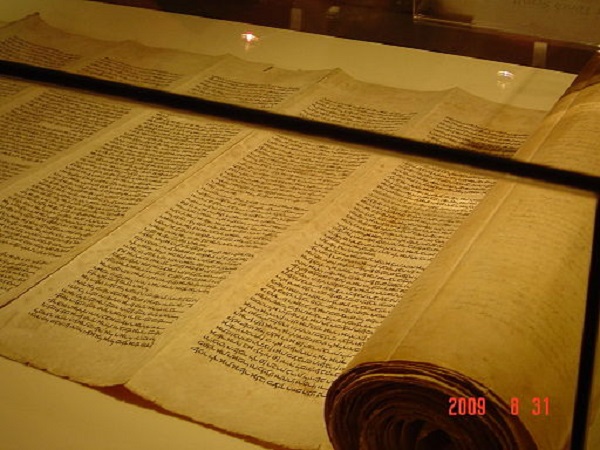Ancient handwriting on 2,600-year-old pottery proves the Bible is true, say researchers
Some pieces of pottery have been discovered containing the "shopping list" of the ancient soldiers of Judah, giving evidence that the Bible is true, according to researchers.
Researchers from Tel Aviv University have been studying the inscriptions they found on shards of 2,600-year-old pottery referred to as "ostraca."

They discovered that the inscriptions, which simply listed some supplies that the soldiers wanted to take to a certain fortress, were written with accuracy even though they were probably done by low-ranking soldiers. This suggested a high level of literacy among Israelites at the time — not only among the royalty or priests or scribes, but even the common people.
"Scripture implies that literacy would be a necessity, even among the general populace," Avery Foley of Answers in Genesis wrote.
The Bible is filled with stories of Israelites putting things into writing, such as writing down God's commands on their doorposts. In the book of Joshua, Joshua sent three men to survey the land that was allotted for seven tribes and told them to write what they observed in a book. In the book of Genesis, one of the oldest books in the Bible, there was mention of the "book of the generations of Adam."
For the researchers, the inscriptions found on the pottery shards give evidence against the argument that most of the books in the Bible were not written until 586 B.C. This argument cites illiteracy among the Israelites and stands on the idea that the Israelites became literate only after they were taken as captives by the Babylonians, who supposedly educated them.
However, many Bible scholars believe that the books were authored by the persons specified in them and that they were written during the time period described in them. They believe, for example, that the Book of Isaiah was written by the prophet himself during the reign of four different kings – Uzziah, Jotham, Ahaz and Hezekiah.
Foley stated that the inscriptions giving proof of Israel's high level of literacy shows that God's word is accurate.
"This new study supports the accuracy of God's Word. It demonstrates that Israel was more literate than many scholars believe," Foley said. "This means that prophets—even prophets who were common folk such as Amos, a shepherd — could have been literate and able to pen their writings."





